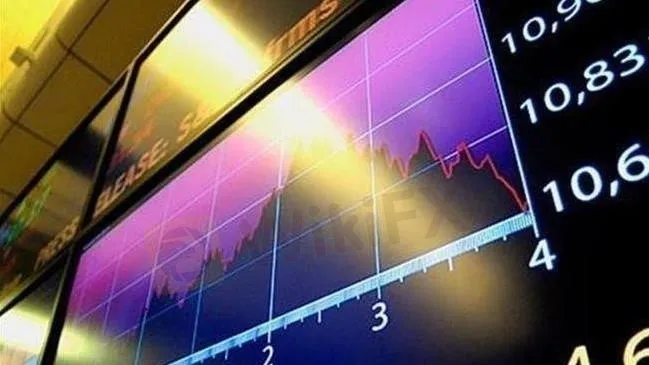Asian Stocks Digesting US Banking Woes, China Outperforms
Abstract:Asian stocks crept higher on Monday as markets gauged the potential fallout from a banking crisis in the U.S., while Chinese indexes outperformed as the government promised more support for the economy.

Asian stocks crept higher on Monday as markets gauged the potential fallout from a banking crisis in the U.S., while Chinese indexes outperformed as the government promised more support for the economy.
China‘s Shanghai Shenzhen CSI 300 and Shanghai Composite indexes rose about 0.8% each, while Hong Kong’s Hang Seng index rallied over 2% after new Premier Li Qiang sought to reassure the private sector with the promise of easier policies, and that the government will ensure that its annual economic projections are met.
Li's appointment comes as Xi Jinping is officially elected President for a third consecutive term. The president also retained his top ministers of finance and commerce, including People's Bank Governor Yi Gang. The move helped reassure investors that China's post-COVID reopening is likely to go ahead, potentially triggering an even bigger economic renaissance this year. But readings on the economy so far paint a mixed picture of the recovery.
The move helped reassure investors that Chinas post-COVID reopening will likely remain on course, potentially heralding a bigger economic bounceback this year. But readings on the economy have so far painted a mixed picture of a recovery.
Still, Chinese property stocks slumped after heavyweight Country Garden Holdings Company Ltd (HK:2007) warned of a bumper loss in 2022, due to a downturn in the sector.
While a Chinese recovery bodes well for broader Asian markets, markets were largely focused on a brewing banking crisis in the U.S., following the collapse of Silicon Valley Bank (NASDAQ:SIVB) and its seizure by regulators.
U.S. regulators intervened over the weekend to reassure markets and stem a bigger fallout from the collapse.
But the prospect of more ructions in the U.S. banking sector saw markets pricing in a greater chance that the Federal Reserve will taper its hawkish rhetoric in the coming months. Most Asian stocks advanced slightly on this notion, with technology-heavy bourses such as South Koreas KOSPI and the Taiwan Weighted index adding 0.3% and 0.2%, respectively.
Fed Fund futures showed a greater chance that the Fed will hike by 25 basis points next week, down from expectations for a raise of 50 bps. Focus is now on an emergency meeting convened by the Fed later in the day, as well as consumer price index (CPI) inflation data due on Tuesday.

Read more

CySEC reaches €20k settlement with ZFN EUROPE
According to report, the Cyprus Securities and Exchange Commission (CySEC) announced today that it has entered into a settlement agreement with ZFN EUROPE Ltd for the amount of €20,000. This settlement resolves a regulatory inquiry into ZFN Europe’s compliance with Cyprus’s Investment Services and Activities and Regulated Markets Law of 2017, as amended.

How is AI Transforming Scams and Making Them Harder to Detect?
AI is revolutionizing scams, making them harder to detect. Learn how AI-powered scams work and expert tips to protect yourself from falling victim.

Why You Shouldn't Be Afraid to Trust Your Capital to Regulated Brokers
Discover why regulated brokers offer safety for your capital with oversight, security, and transparency, plus the risks of unregulated options. Invest with confidence.

Prop Trading Firms vs. CFD Brokers: Who’s Winning the Retail Trading Race?
In recent years, a new breed of retailer-focused trading firms has emerged: proprietary (prop) trading outfits that recruit individual traders to trade the firm’s capital under structured rules. Boasting low entry costs, clear risk parameters, and profit-sharing incentives, these prop firms are rapidly winning over retail traders, many of whom previously traded Contracts for Difference (CFDs) with established online brokers. As prop trading revenues accelerate, a key question arises: Are CFD brokers losing business to prop firms?
WikiFX Broker
Latest News
Love, Investment & Lies: Online Date Turned into a RM103,000 Scam
Broker Took 10% of User's Profits – New Way to Swindle You? Beware!
Pi Network: Scam Allegations Spark Heated Debate
Broker Comparsion: FXTM vs AvaTrade
Account Deleted, Funds Gone: A New Broker Tactic to Beware Of?
Broker’s Promise Turns to Loss – Funds Disappear, No Compensation!
El Salvador and U.S. Launch Cross-Border Crypto Regulatory Sandbox
The Instagram Promise That Stole RM33,000
Coinbase Launches Bitcoin Yield Fund for Institutional Investors
Before You Trade the Next Big Thing, Remember the Dot-Com Collapse
Rate Calc

